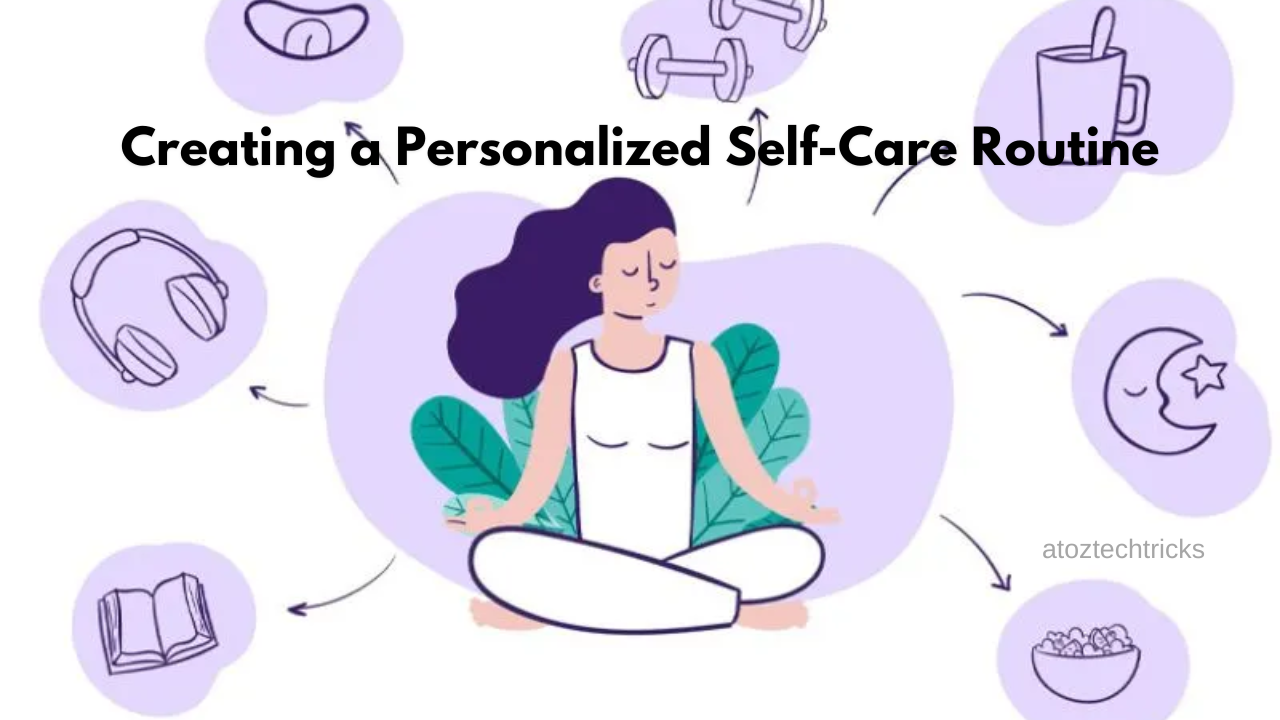Creating a Personalized Self-Care Routine: Your Ultimate Guide to Wellness
In today’s fast-paced world, self-care has evolved from being a luxury to a necessity. The concept of self-care encompasses activities and practices that enhance your overall well-being, addressing both physical and mental health. Crafting a personalized self-care routine tailored to your needs can be transformative, promoting balance, reducing stress, and improving your quality of life. This guide will help you build a self-care routine that fits your unique lifestyle and preferences, ensuring you nurture every aspect of yourself.
Understanding Self-Care
Self-care refers to the actions you take to preserve or improve your health, manage stress, and enhance your overall well-being. It involves a holistic approach, covering various domains such as physical, emotional, mental, and social health. Recognizing that self-care is not a one-size-fits-all concept is crucial. What works for one person may not work for another, making personalization essential for an effective routine.
The Importance of a Personalized Self-Care Routine
Creating a personalized self-care routine ensures that your self-care practices align with your unique needs, goals, and preferences. It provides a structured approach to self-care, helping you stay consistent and make time for activities that genuinely benefit you. Personalization also increases the likelihood of adherence, as you’re more likely to engage in practices that resonate with you on a personal level.
Celebrating Financial Milestones: A Guide to Recognizing and Rewarding Your Financial Success
Steps to Create Your Personalized Self-Care Routine
1. Assess Your Needs and Goals
Start by evaluating your current state of well-being. Consider the following questions:
- Physical Health: How do you feel physically? Are there any health concerns or areas you’d like to improve?
- Emotional Health: What is your emotional state? Do you experience frequent stress, anxiety, or sadness?
- Mental Health: How is your mental clarity and focus? Are you struggling with mental fatigue or cognitive overload?
- Social Well-being: How are your social interactions? Do you feel connected and supported?
By assessing these areas, you can identify which aspects of self-care require the most attention.
2. Identify Your Preferences
Determine what types of activities and practices you enjoy. Consider the following:
- Physical Activities: Do you prefer high-intensity workouts, yoga, or leisurely walks?
- Relaxation Techniques: Are you drawn to meditation, journaling, or creative hobbies?
- Social Engagement: Do you thrive in social settings or need more time for solitary activities?
Your preferences will guide you in selecting self-care practices that you find enjoyable and sustainable.
3. Set Realistic Goals
Establish clear, achievable goals for your self-care routine. Goals might include:
- Improving Sleep: Aim to develop a consistent sleep schedule and create a relaxing bedtime routine.
- Increasing Physical Activity: Set goals for daily or weekly exercise, incorporating activities you enjoy.
- Enhancing Emotional Resilience: Explore mindfulness techniques or therapy to manage stress and emotions.
Setting realistic goals ensures that your routine is manageable and aligns with your lifestyle.

4. Choose Your Self-Care Practices
Based on your needs, preferences, and goals, select self-care practices that fit into your routine. Here are some categories and examples:
a. Physical Self-Care:
- Exercise: Choose activities that you enjoy, such as jogging, cycling, or dancing.
- Nutrition: Focus on a balanced diet rich in fruits, vegetables, and whole grains.
- Hydration: Drink plenty of water throughout the day.
- Sleep: Establish a regular sleep schedule and create a restful sleep environment.
b. Emotional Self-Care:
- Journaling: Reflect on your thoughts and feelings to process emotions.
- Meditation: Practice mindfulness to enhance emotional resilience.
- Gratitude: Keep a gratitude journal to focus on positive aspects of life.
c. Mental Self-Care:
- Learning: Engage in activities that stimulate your mind, such as reading or puzzles.
- Rest: Allow yourself regular breaks to avoid burnout.
- Creative Outlets: Pursue hobbies like painting or writing to foster creativity.
d. Social Self-Care:
- Connections: Spend quality time with friends and family.
- Boundaries: Set boundaries to ensure you have time for yourself.
- Community: Engage in social activities or volunteer work to build connections.
5. Create a Routine Schedule
Develop a schedule that integrates your chosen self-care practices into your daily or weekly routine. Consider the following tips:
- Prioritize: Identify key activities that address your most pressing needs.
- Balance: Ensure a mix of activities that cover physical, emotional, mental, and social aspects.
- Flexibility: Allow for adjustments to accommodate changes in your schedule or priorities.
6. Track Your Progress
Monitor your self-care routine to assess its effectiveness and make necessary adjustments. Consider:
- Tracking Tools: Use journals, apps, or planners to record your self-care activities and reflections.
- Regular Reviews: Set aside time to evaluate your progress and make changes as needed.
- Feedback: Pay attention to how you feel physically and emotionally to gauge the impact of your routine.
Overcoming Common Challenges
Creating and maintaining a personalized self-care routine can present challenges. Here are some common obstacles and strategies to overcome them:
1. Time Constraints: Balancing a busy schedule with self-care can be challenging. Consider integrating self-care practices into your daily routine, such as taking short breaks for relaxation or incorporating exercise into your commute.
2. Lack of Motivation: Staying motivated can be difficult. Set small, achievable goals and reward yourself for progress. Engaging in activities you enjoy will also help maintain motivation.
3. Perceived Ineffectiveness: If you feel that certain practices aren’t working, be open to trying new approaches. Self-care is a personal journey, and it may take time to find what works best for you.
4. External Pressures: Managing expectations from others can be challenging. Communicate your self-care needs and boundaries to those around you, and prioritize your well-being.

Self-Care Practices for Different Lifestyles
1. Busy Professionals: For those with demanding jobs, focus on quick and effective self-care practices. Consider short mindfulness exercises, quick workouts, and meal prepping to maintain balance.
2. Students: Balancing academics and self-care can be challenging. Implement stress-relief techniques, such as time management strategies, regular breaks, and relaxation exercises.
3. Parents: Incorporate self-care practices that fit into your family life. Involve your family in activities, such as outdoor outings or family meals, and ensure you have personal time for relaxation.
4. Retirees: Embrace a self-care routine that promotes physical and mental vitality. Engage in hobbies, social activities, and gentle exercises to maintain a fulfilling lifestyle.
Creating a personalized self-care routine is an empowering journey that fosters a deeper connection with yourself and enhances your overall well-being. By assessing your needs, identifying your preferences, setting realistic goals, and choosing appropriate practices, you can build a routine that supports your physical, emotional, mental, and social health. Remember that self-care is a continuous process, and it’s essential to adapt your routine as your needs and circumstances evolve. Prioritize self-care, and you’ll reap the benefits of a healthier, more balanced life.




Post Comment